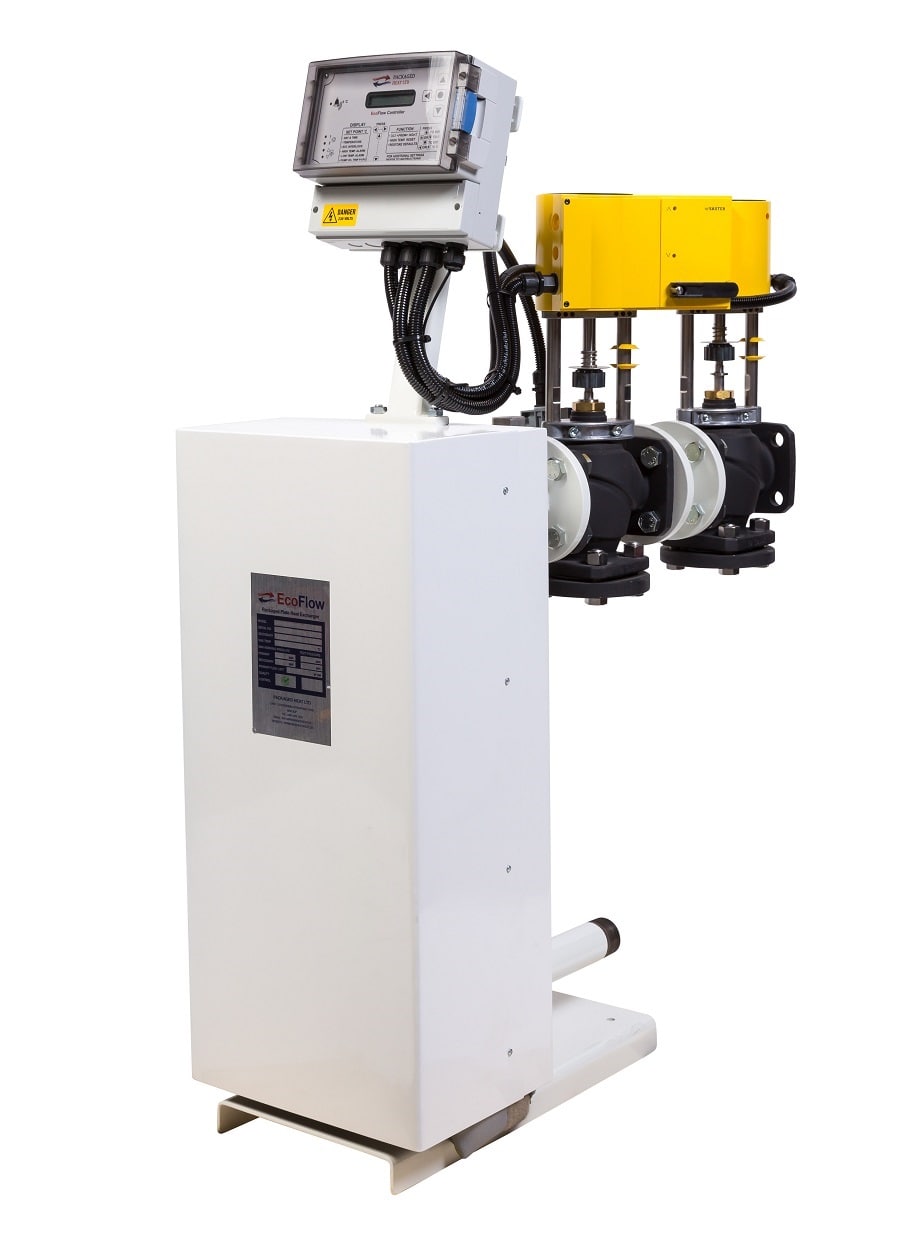Upgrade to a Smart Water Heater: 5 Benefits You Can’t Ignore
Upgrading to a smart water heater is a game-changer for anyone looking to enhance their water heating system. This article delves into the top 5 benefits of making the switch, from energy savings to enhanced control. If you’re considering an upgrade, this comprehensive guide will show you why a smart water heater is a wise investment for your home.
Article Outline
- What is a Smart Water Heater?
- How Does a Smart Water Heater Work?
- Why Should You Upgrade to a Smart Water Heater?
- How Do Smart Water Heaters Save Energy?
- What are the Cost Benefits of Smart Water Heaters?
- How Do Smart Water Heaters Improve Comfort and Convenience?
- Can a Smart Water Heater Enhance Your Home’s Energy Efficiency?
- What Are the Environmental Benefits of Using a Smart Water Heater?
- How Easy is it to Install a Smart Water Heater?
- Is a Smart Water Heater Right for Your Home?
What is a Smart Water Heater?
A smart water heater is a modern version of the traditional water heater, equipped with advanced technology to provide better control and efficiency. Unlike conventional water heaters, smart water heaters come with features such as Wi-Fi connectivity, smart thermostats, and smartphone apps. These devices allow homeowners to monitor and control their water heating systems remotely, making it easier to manage hot water usage and energy consumption.
Smart water heaters use smart technology to learn your household’s hot water usage patterns and adjust automatically, ensuring you always have hot water when you need it. This technology not only enhances convenience but also optimizes energy consumption, reducing unnecessary energy use and lowering energy bills.

How Does a Smart Water Heater Work?
Smart water heaters operate by integrating smart features like Wi-Fi connectivity, smart thermostats, and mobile apps. These features provide real-time data on water usage, allowing homeowners to control the water temperature and heating schedules remotely.
For instance, with a smart thermostat, you can set the water heater to heat water only when you need it, thus reducing energy losses. Smart water heaters also come equipped with sensors that detect water temperature and usage patterns, enabling them to heat water more efficiently.
Additionally, smart water heaters can be programmed to heat water during off-peak hours when energy costs are lower, further reducing energy consumption. The ability to turn your water heater on or off remotely through a smartphone app also means you can manage your water heating system whether you’re at home or away.
Why Should You Upgrade to a Smart Water Heater?
Upgrading to a smart water heater offers numerous benefits that make it a worthwhile investment. Here are five compelling reasons to upgrade:
- Enhanced Control and Convenience: Smart water heaters provide complete control over your water heating system, allowing you to adjust settings remotely via a smartphone app. This means you can ensure your water is always at the right temperature and reduce energy consumption when you’re not home.
- Energy Savings: By optimizing energy usage based on your hot water usage patterns, smart water heaters can significantly reduce energy consumption. This leads to lower monthly energy bills and a reduced carbon footprint.
- Improved Comfort: With a smart water heater, you can ensure a consistent supply of hot water, eliminating the frustration of running out of hot water during a shower. The system learns your household’s hot water needs and adjusts accordingly.
- Cost Benefits: While the initial cost of a smart water heater may be higher than a regular water heater, the long-term savings on energy bills and maintenance costs make it a cost-effective choice.
- Environmental Impact: Smart water heaters use energy more efficiently, reducing greenhouse gas emissions and contributing to a greener environment.
How Do Smart Water Heaters Save Energy?
Smart water heaters are designed to minimize energy consumption by learning and adapting to your household’s hot water usage patterns. They heat water only when it’s needed and maintain optimal water temperature, thus preventing energy waste.
One key feature is the ability to schedule heating cycles during off-peak hours when energy rates are lower. This not only saves money but also reduces the strain on the power grid during peak times. Additionally, smart water heaters can detect leaks or malfunctions early, preventing unnecessary energy use and potential damage.
By providing real-time data and insights into your water and energy consumption, smart water heaters help you make more informed decisions about your energy usage. This leads to significant energy savings and a reduction in overall energy consumption.
What are the Cost Benefits of Smart Water Heaters?
Although smart water heaters have a higher upfront cost compared to traditional water heaters, the long-term financial benefits are substantial. The energy efficiency of smart water heaters translates to lower monthly energy bills, which can offset the initial investment over time.
Moreover, smart water heaters require less maintenance due to their advanced monitoring systems. These systems can detect issues early, allowing for timely repairs and preventing costly damages. Some smart water heaters are also eligible for rebates or incentives from utility companies, further reducing the overall cost of the upgrade.
How Do Smart Water Heaters Improve Comfort and Convenience?
One of the most significant advantages of smart water heaters is the enhanced comfort and convenience they provide. With features like remote control via a smartphone app, you can ensure that you always have hot water when you need it.
Smart water heaters learn your hot water usage patterns and adjust the heating schedule accordingly. This means you’ll never have to wait for hot water again. Additionally, some smart water heaters offer the ability to set different temperatures for different times of the day, providing a customized water heating experience.
The ability to monitor and control your water heater from anywhere also means you can make adjustments on the go. Whether you’re at work or on vacation, you can ensure your water heating system is operating efficiently and providing the hot water you need.
Can a Smart Water Heater Enhance Your Home’s Energy Efficiency?
Absolutely. Smart water heaters are designed to optimize energy usage, making your home more energy-efficient. By learning your hot water usage patterns and adjusting heating schedules accordingly, smart water heaters ensure that energy is used only when needed.
Furthermore, smart water heaters can be integrated with other smart home devices, such as smart thermostats and energy management systems. This integration allows for a more coordinated approach to home energy management, further enhancing energy efficiency.
By reducing energy waste and optimizing energy consumption, smart water heaters help lower your overall energy costs and contribute to a more sustainable home environment.
What Are the Environmental Benefits of Using a Smart Water Heater?
Using a smart water heater can have a positive impact on the environment. By optimizing energy usage and reducing waste, smart water heaters lower greenhouse gas emissions and contribute to a greener planet.
Smart water heaters also support the use of renewable energy sources. Some models are compatible with solar panels or other renewable energy systems, allowing homeowners to heat water using clean energy. This further reduces the reliance on fossil fuels and decreases the household’s carbon footprint.
Additionally, by providing insights into water and energy consumption, smart water heaters encourage more sustainable practices and help homeowners make eco-friendly choices.
How Easy is it to Install a Smart Water Heater?
Installing a smart water heater is relatively straightforward, especially if you’re replacing an existing water heater. Many smart water heaters are designed to fit into the same space and use the same connections as traditional water heaters, making the upgrade process simple.
However, it’s important to hire a professional plumber or technician to ensure the installation is done correctly. Proper installation is crucial for the safe and efficient operation of the smart water heater. A professional can also help set up the smart features and integrate the water heater with your home’s Wi-Fi network.
For those who are tech-savvy, setting up the smart features and connecting the water heater to a smartphone app can be done easily with the provided instructions. Overall, the installation process is hassle-free and can be completed in a short amount of time.
Is a Smart Water Heater Right for Your Home?
Deciding whether a smart water heater is right for your home depends on several factors, including your budget, hot water usage, and energy-saving goals. If you’re looking for a more efficient and convenient way to manage your hot water needs, a smart water heater is an excellent choice.
Consider your current water heating system and how it meets your needs. If you’re frequently running out of hot water or facing high energy bills, upgrading to a smart water heater can provide a solution. Additionally, if you’re interested in integrating smart home technology for better energy management, a smart water heater is a perfect fit.
Ultimately, the benefits of a smart water heater—such as energy savings, enhanced control, and improved comfort—make it a worthwhile investment for most households.
Summary of Most Important Things to Remember
- Enhanced Control: Smart water heaters offer remote control via smartphone apps, providing convenience and flexibility.
- Energy Savings: Optimized energy usage leads to lower energy bills and reduced environmental impact.
- Improved Comfort: Consistent hot water supply and personalized heating schedules enhance comfort.
- Cost Benefits: Long-term savings on energy bills and maintenance costs make smart water heaters a cost-effective choice.
- Environmental Impact: Reduced greenhouse gas emissions and compatibility with renewable energy sources contribute to a greener planet.
- Ease of Installation: Professional installation ensures safe and efficient operation, with straightforward setup for smart features.
By upgrading to a smart water heater, you can enjoy these benefits and more, making your home more energy-efficient and comfortable.














